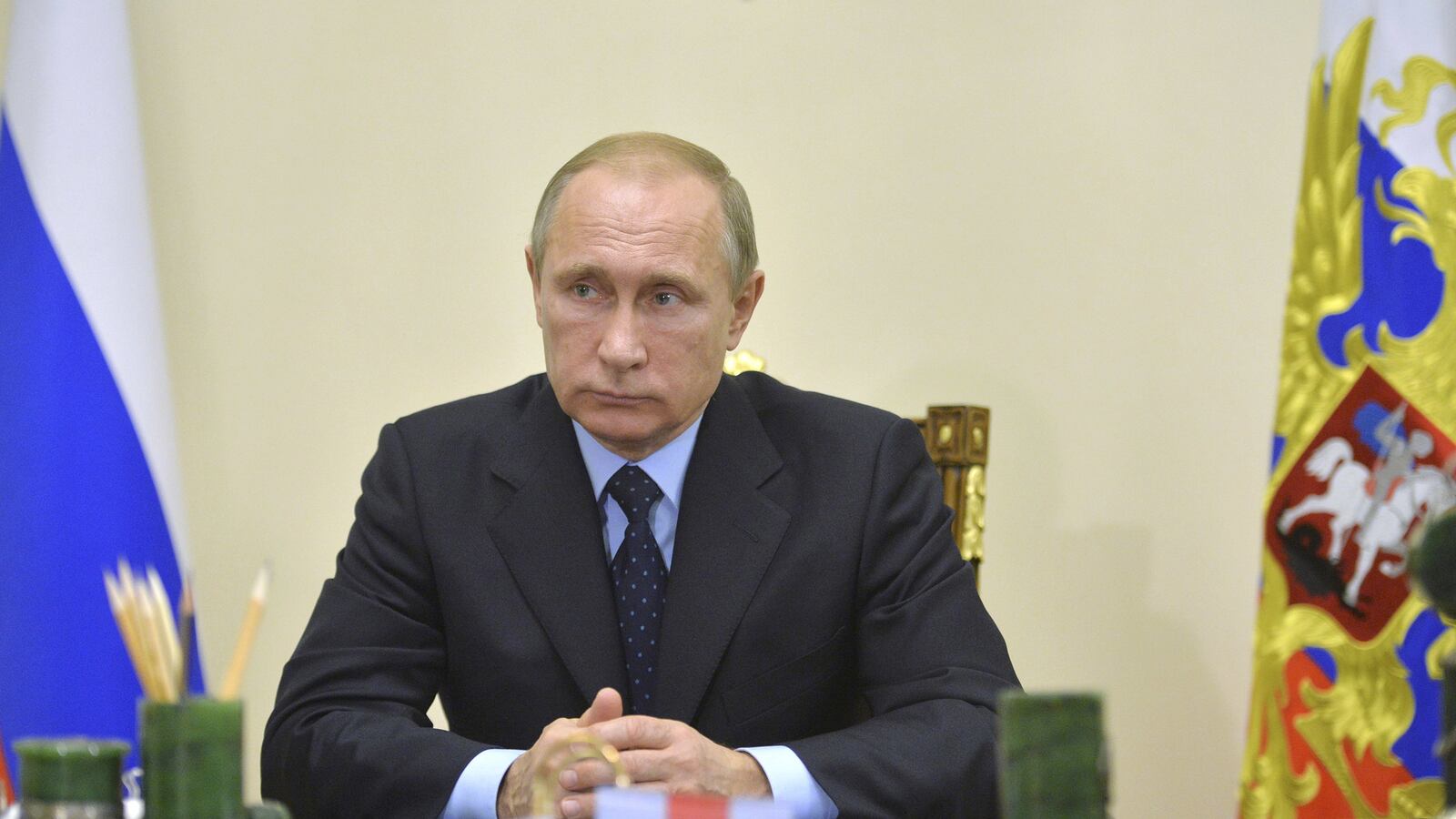All day on Sunday, the day after a Kogalymavia plane crash killed 224 people, the biggest loss in the history of Russian commercial aviation, Russians were wondering: Where is Putin?
Russia’s leader did not appear in public for almost two days. Finally, on Monday, President Vladimir Putin made his first comments about the “enormous tragedy.” As he spoke, state cargo planes were bringing the victims’ remains from Egypt to St. Petersburg, Putin’s home city.
In the video aired by state television channels, Putin looked heartbroken, humbled. That was not the usual action man that Russians had been shown before: Putin on top of a horse or lecturing the United Nations.
Putin appeared to look much older this time with his wet, weary eyes, molted and slightly bruised skin on his cheeks. In his public statement, Putin thanked the residents of St. Petersburg and all Russians for the way they had responded to the catastrophe.
“In such tragic hours it is certainly very important to feel the support of those close to you and know, that you have the entire country’s sympathy over this terrible disaster,” he said.
The video made political analysts, bloggers and ordinary Russians wonder why it took Putin so long to compose the words of condolence or make any statement at all. What had he been thinking, while the entire world mourned the victims?
By Saturday morning, more than 43,000 Twitter users mentioned #7K9268 hashtag. Putin did not show up in St. Petersburg to support the crying relatives of victims, to answer their questions.
“He does not like, when his name and his face appear next to tragedies, losses or simple failures,” Anton Orekh, a political observer explained in his blog, Echo of Moscow.
Sooner or later all responsibilities come back to Putin—that’s what happens when a leader never shares his power. Whatever version the Kremlin chose as the most likely cause for the disaster, it would sound poor for Putin’s reputation.
“Our aviation is in its poorest shape, that could be compared to coma,” Valentin Lavrenteyev, a professional pilot, who had tested fighter aircraft for most of his career, told The Daily Beast. “It is unlikely that our aviation has a chance to ever recover,” he added.
Without waiting for the results of the investigation, Russian policymakers began to suggest various bans and regulations. The Ministry of Culture decided to cancel The Night of Arts events at libraries and museums across the country, scheduled for this week. Some parliament deputies suggested banning Halloween celebrations, others demanded to forbid Russian airlines from buying planes that were more than 15 years old (the Airbus 321 that crashed was 18 years old).
The version of a terror attack suggested by both the airline and various Westerners made Putin and his policy in the Middle East look bad. The Kremlin seemed clearly torn between different excuses for the crash.
On Monday the head of Kogalymavia airlies insisted that it was some sort of “external” impact that caused the catastrophe. Officials with Russia’s civil aviation authority quickly shot down that theory.
Though one of Putin’s most loyal allies couldn’t be dissuaded.
“Aerobuses do not fall off the sky by themselves,” Aleksei Pushkov, parliament speaker, wrote on Twitter. His note demonstrated that the Kremlin was desperately looking for some enemy to sacrifice.
These days many Russians shared the pain and understood relatives of victims of MH17 disaster better.
“I now know why Dutch and Malaysian families demand to investigate who shot down the plane in Ukraine, we want to know the truth about what really happened in Egypt to our plane,” Natalya Kiselvova, a designer based in St. Petersburg, told The Daily Beast.
As have thousands of other Russian parents, Kiselyova bought tourist packages and took her children to Egypt almost every year. Russians love the Red Sea and the beach in Sharm El-sheikh—not least of all because it is one of very few affordable tourist options Russians have left. (A $500-$600 package includes round-trip airfare, a week’s stay in a hotel, and a couple of meals a day.) Many wondered if it was safe to fly to Egypt now. Victims of the Sinai disaster were mostly young couples and families, including at least 24 children.
Last weekend was not the first time Russians missed the president on the days of the nation’s pain and tears. In the beginning of his presidency, on the day the Kursk submarine sank with 118 sailors on board, Putin disappeared, too. That time the president remained silent for five days. At his first press conference after the disaster, Putin appeared in casual clothes at his summer residence on the Black Sea. Putin’s silence infuriated the families of Kursk sailors.
Was the president serious about telling Russians the truth this time? Putin’s tired and sad face on TV did not convince Sergei Parkhomenko, a Moscow-based independent political observer.
“Putin thinks he is God, who can not only rule over people’s fates around the world but also control the flow of time and the expansion of space,” Parkohomenko said. “He is above all the concerns we have here on the ground, I believe that this is incurable.”






